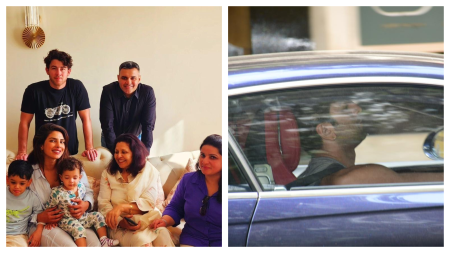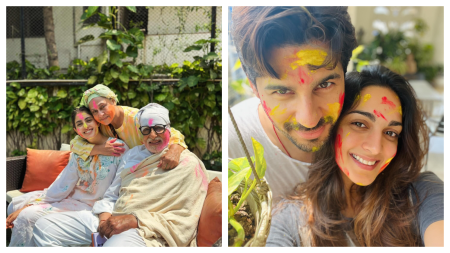- India
- International
As the gap widens
At the Woodpecker International Film Festival, a documentary will train its lens on how queer people navigate public spaces like the Delhi Metro.
 A scene from the documentary ‘Please Mind the Gap’.
A scene from the documentary ‘Please Mind the Gap’.
Am I Jackie Shroff or Kareena Kapoor?” Anshuman, laughs while replying, in the documentary film, Please Mind the Gap. “According to Nalsa (National Legal Services Authority vs Union of India, 2014), you can choose whoever you want to be.” Five years since the Nalsa judgment, public toilets still don’t acknowledge the third gender. On Tuesday, the Transgender Persons (Protection of Rights) Bill, 2019, was passed in the Rajya Sabha, with the very “dehumanising and regressive”, “transphobic” caveats that were challenged earlier by members of Parliament and the community. The film, Please Mind the Gap, to be screened at Woodpecker International Film Festival, on November 30 (11.30 am), at Delhi’s Siri Fort Auditorium, scratches the surface, with a certain kind of nuance and empathy otherwise amiss in real life, in how laws are made about them, without them.
The Bill that Anshuman looks forward to in the film which “would encourage their right of self-identification, compromises this right by putting in place a physical screening committee. It seems, we, as a society, are still minding our gap,” says Mitali Trivedi, co-director of the documentary, adding, “From the moment you enter, the Delhi Metro divides you into two spaces/binaries — men and women.”
The film, through the lens of gender, peels the layers of the word “gap”. The journey that unfolds through Anshuman’s narrative voice, however, isn’t punctured by statistics or trite questions like “when did you come out?” but with riders: instructions on not to eat or play music while aboard. We see Anshuman bemused, his backpack hung in front as a protective measure, on seeing the larger-than-life statue of Hanuman from the blue line of the Metro, as he shares anecdotes from his life — his many names, Raanu and Chaand, that his family calls him by, how he would take girls out on a bike at his all-girls college, dodging lewd passengers, and the conundrum of which line to get frisked in.
“I instinctually create a gap and make sure that I maintain it from both boys and girls,” says the street-smart, happy-go-lucky Anshuman, in the film, while describing the difficulties he faces as a transman on the Delhi Metro — the other protagonist in the film. “When we say transgender, people automatically think transwomen, but here is a transman, who is already a minority within a minority,” says Trivedi, “You can see the (caste and class) divides in Delhi by travelling the different lines of the Metro.”
 Filmmaker Mitali Trivedi and cinematographer Manjesh Rana.
Filmmaker Mitali Trivedi and cinematographer Manjesh Rana.
The 20-minute film started as a 10-minute proposal about “queer people holding hands in public as an act of both love and resistance” that the first-timers — directors Trivedi and Gagandeep Singh and cinematographer Manjesh Rana — sent to Public Service Broadcasting Trust, soon to realise that what looks good on paper doesn’t necessarily translate visually. Rana, 31, was then teaching at Delhi University’s Law Faculty, Singh was his student, and Trivedi, 27, was studying economics in DU and later did a master’s in gender studies.

Trivedi’s father, Lokendra Trivedi, a professor at National School of Drama, taught her the need to know one’s subject first. It helped that she and Anshuman both lived in east Delhi, and could hang out for a year, take the Metro, go have chai and sandwiches, and learn that he loves chocolate chips. They met Anshuman through the NGO Tweet (Transgender Welfare Equity and Empowerment Trust) Foundation. The late-20-something sole breadwinner of his family came from Farrukhabad, Uttar Pradesh, to Delhi for a real-estate job, then trained in hotel management, and is now studying for civil service examinations.
Irony writes itself as the documentary, shot on a Google Pixel phone inside the coaches, opens with the familiar injunction: “Photography and videography are strictly prohibited in Metro premises”. Rana says, phone “sabke haath mein hota hai, it was the best medium to remain invisible in the Metro”.
Photos
Apr 19: Latest News
- 01
- 02
- 03
- 04
- 05








































